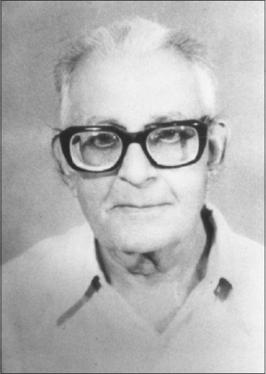Baldev Singh (neurologist)
Baldev Singh is a prominent figure in the field of neurology, known for his extensive research and contributions to understanding various neurological disorders. His work has significantly impacted the diagnosis, treatment, and management of diseases affecting the nervous system.
Early Life and Education[edit | edit source]
Baldev Singh was born in India, where he developed an early interest in the sciences, particularly in human biology and the complexities of the brain. He pursued his medical degree at a prestigious university in India, excelling in his studies and showing a keen interest in neuroscience. Recognizing his passion for the field, Singh went on to specialize in neurology during his postgraduate training, where he gained a deep understanding of neurological diseases and their impact on patients.
Career[edit | edit source]
After completing his education, Dr. Singh embarked on a career that would see him working in various prestigious hospitals and research institutions around the world. His clinical work involved diagnosing and treating patients with a wide range of neurological conditions, from common ailments like migraines and epilepsy to more complex disorders such as Parkinson's disease and multiple sclerosis.
In addition to his clinical duties, Dr. Singh dedicated a significant portion of his career to research. He has been involved in numerous studies aiming to uncover the underlying causes of neurological disorders, improve diagnostic methods, and develop more effective treatments. His research has been published in several high-impact medical journals, contributing valuable knowledge to the field of neurology.
Contributions to Neurology[edit | edit source]
One of Dr. Singh's key contributions to neurology is his work on the development of innovative diagnostic tools and techniques. He has been instrumental in advancing the use of MRI (Magnetic Resonance Imaging) and CT scans (Computed Tomography) in the diagnosis of neurological conditions, helping to improve the accuracy and speed of diagnosis.
Furthermore, Dr. Singh has played a pivotal role in researching and advocating for the use of new and emerging therapies in the treatment of neurological diseases. His work in the area of neuropharmacology has led to the development of new medications that offer better outcomes for patients with fewer side effects.
Awards and Recognition[edit | edit source]
Throughout his career, Dr. Baldev Singh has received numerous awards and honors in recognition of his contributions to neurology. These accolades reflect his dedication to advancing the field and improving the lives of those affected by neurological disorders.
Legacy and Future Directions[edit | edit source]
Dr. Singh's legacy in neurology is marked by his commitment to excellence in both patient care and research. As he continues his work, he remains focused on exploring new frontiers in neurology, with a particular interest in the potential of genetic engineering and stem cell therapy to treat neurological conditions.
His ongoing research and clinical work not only contribute to the current understanding and treatment of neurological diseases but also pave the way for future innovations in the field.
| Health care | ||||||||||
|---|---|---|---|---|---|---|---|---|---|---|
* Category
|
Search WikiMD
Ad.Tired of being Overweight? Try W8MD's NYC physician weight loss.
Semaglutide (Ozempic / Wegovy and Tirzepatide (Mounjaro / Zepbound) available. Call 718 946 5500.
Advertise on WikiMD
|
WikiMD's Wellness Encyclopedia |
| Let Food Be Thy Medicine Medicine Thy Food - Hippocrates |
Translate this page: - East Asian
中文,
日本,
한국어,
South Asian
हिन्दी,
தமிழ்,
తెలుగు,
Urdu,
ಕನ್ನಡ,
Southeast Asian
Indonesian,
Vietnamese,
Thai,
မြန်မာဘာသာ,
বাংলা
European
español,
Deutsch,
français,
Greek,
português do Brasil,
polski,
română,
русский,
Nederlands,
norsk,
svenska,
suomi,
Italian
Middle Eastern & African
عربى,
Turkish,
Persian,
Hebrew,
Afrikaans,
isiZulu,
Kiswahili,
Other
Bulgarian,
Hungarian,
Czech,
Swedish,
മലയാളം,
मराठी,
ਪੰਜਾਬੀ,
ગુજરાતી,
Portuguese,
Ukrainian
Medical Disclaimer: WikiMD is not a substitute for professional medical advice. The information on WikiMD is provided as an information resource only, may be incorrect, outdated or misleading, and is not to be used or relied on for any diagnostic or treatment purposes. Please consult your health care provider before making any healthcare decisions or for guidance about a specific medical condition. WikiMD expressly disclaims responsibility, and shall have no liability, for any damages, loss, injury, or liability whatsoever suffered as a result of your reliance on the information contained in this site. By visiting this site you agree to the foregoing terms and conditions, which may from time to time be changed or supplemented by WikiMD. If you do not agree to the foregoing terms and conditions, you should not enter or use this site. See full disclaimer.
Credits:Most images are courtesy of Wikimedia commons, and templates, categories Wikipedia, licensed under CC BY SA or similar.
Contributors: Prab R. Tumpati, MD

